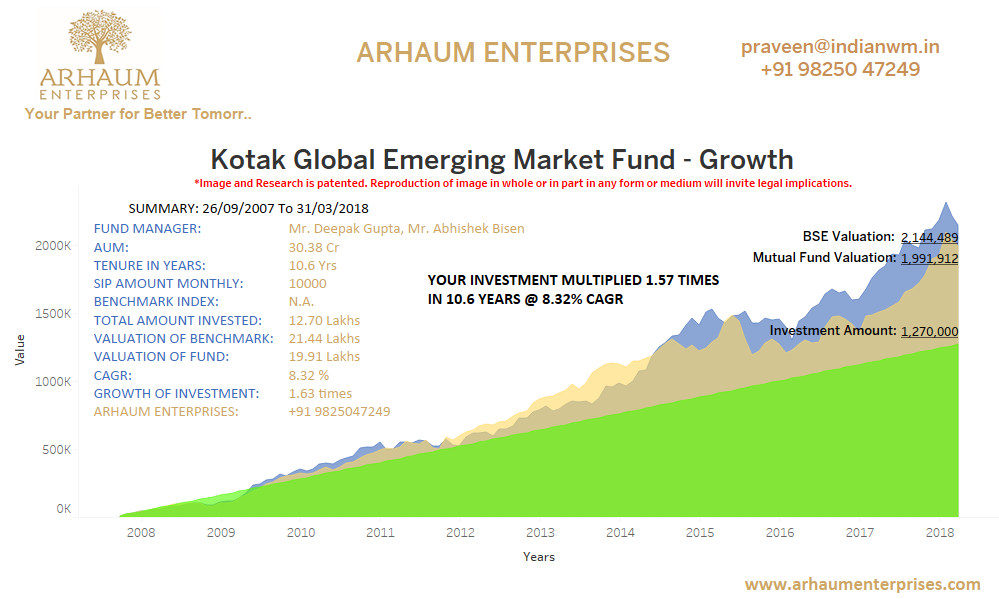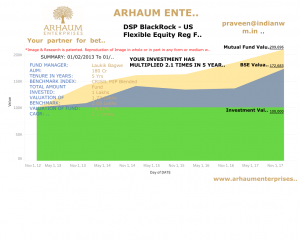There are changes happening in every aspect in our lives. One change that has affected our lives is the growth in financial needs and products available. The result is that today there is a large number of advisors / distributors or consultants that we are associated with. Though this may not be necessarily a bad development, questions do arise on practicality and need to deal with so many different people. In this article, we try to look from the investors perspective and answer upon some unspoken questions.
Choosing advisors:
The first question that arises is now many advisors should we deal with. Historically, the onus has really been on the client to make the holistic decisions on his/her overall financial well being, and then engaging with traditional advisors for specific products or services. Typically, it would not be surprising to know that most of us would be dealing with at least 3 to 5 traditional advisors, from the following list, at the same time…
|
Assessing our financial advisory needs:
The right approach would be to not directly hunt for product advisors/distributors but to first look at our needs holistically. By looking at the needs with this purview, we bring greater simplicity and purpose. It is likely that following 4 broad needs would be identified
- Taxation / Accounting services
- Risk protection / insurance
- Wealth creation / investment
- Banking services
We now attempt to take a closer look at the traditional advisors within the framework of our identified needs…
- Taxation / Accounting services: The CA, as an expert for accounting services, is indispensable. However, if inexperienced or not engaged in financial advisory, he/she may not be in the right position to offer pure investment, portfolio or insurance related advice
- Risk protection / insurance: The next need of insurance and the choice of the advisor would be subjective upon you. You may engage with a life insurance agent and a general insurance agent or preferably with someone who does both. The limitation is that a pure insurance advisor/distributor will not be an investments expert and would instead recommend insurance products for pure investment needs too
- Wealth creation / investment: Ideally a wealth advisor should be approached for investment related needs. Typically he would have products for long term wealth creation in his basket. The products of mutual funds, fixed income products and PMS offer acceptable risk-return trade-off and can be looked positively by small & retail investors. The limitation is that he may not be experienced in insurance to provide advice on same.
- Banking services: The bank relationship, should ideally be best treated as a continuous, service related relationship. The Bank RM, armed with bank info, may offer investment products. However, for small / retail investors it is likely that any product advice is made without proper portfolio / financial planning and is transactional in nature there is inadequate attention & service facilities provided
Financial Advisors / Planners:
With the existence of a plethora of financial needs & products, there is a growing need felt for single window approach to financial decisions. Thus, many traditional advisors are now offering multiple products and comprehensive advice. You may ask your advisor and it is likely that he/she would have multiple products/ services in the advisory basket. Such comprehensive Financial Advisors / Planners offering single window advisory on multiple products are at the top of ladder.
Engaging with Advisors
By principle, it is recommended to deal with advisors that have requisite skills in multiple domains. Clients should engage with advisors offering comprehensive financial planning services. There may be a possibility that your CA also offers Investments / Insurance advisory or your Investments advisor may also have Insurance advisory services and vice versa. The benefits of engaging with single financial advisor / planner for multiple needs / financial planning is as follows:
- Comprehensive view of your entire financial situation & goals
- Optimum utilisation of our resources / capital for right reasons
- Unbiased / product neutral advice
- Best of different worlds available
Exception to the principle can possible in cases where you are not confident about the advisor’s knowledge, skills, quality or limitations on product / service offering.
The following matrix summarises the advisors we would be likely to deal with and the services and products expected from them.
| |||||||||||||||||||
To start with, you may approach all your existing advisors and seek information about the different products and services advised and offered. You should specially ask for financial planning services, if any offered.
In brief:
In would be better that we deal with a minimum number of good advisors who are in position to offer the optimal combination of important services and products. Taking the financial planning approach is the best way to deal with a large majority of financial decisions in a holistic manner. This is much better than choosing products first ourselves and then approaching distributors. Also, a person who has knowledge and access to multiple products is likely to be more unbiased and would provide advice which is product neutral, presenting you with the options / products across the board.
Taking about the relationship with your financial advisor, it is indeed a special one. A good relationship is something that has to be treasured by us and at the same time we should also be fair and open regarding our needs & expectations. We should also be ready to share information and pay for quality, unbiased services expected from the financial advisor. The relationship is that where mutual trust, respect and understanding is paramount and so is the ability and intend of the financial advisor to work in your interest.


